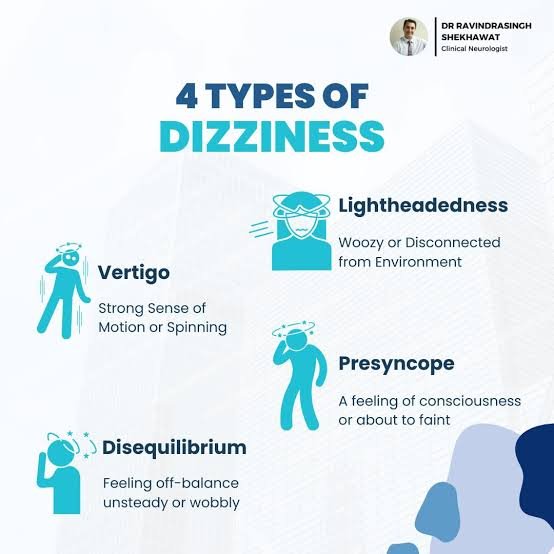Dizziness: Causes and Treatment
Definition, Causes and treatment of dizziness
Definition
Dizziness, a sensation of lightheadedness or being off-balance, can stem from various causes, ranging from common issues like dehydration and low blood pressure to more complex problems like inner ear disorders or certain medications. Treatment often involves addressing the underlying cause, which may include lifestyle changes, medications, or specialized therapies like balance training.
Possible Causes of Dizziness

- Inner Ear Problems: Vertigo, Meniere’s disease, and benign paroxysmal positional vertigo (BPPV) are common inner ear issues that can cause dizziness.
- Circulation Problems: Low blood pressure (hypotension), sudden drops in blood pressure when standing (orthostatic hypotension), and reduced blood flow to the brain can trigger dizziness.
- Medications: Certain medications, like those for blood pressure, can cause dizziness as a side effect.
- Dehydration: Not drinking enough fluids can lead to a drop in blood volume and pressure, causing dizziness.
- Low Blood Sugar (Hypoglycemia):This can cause a rapid drop in blood sugar, leading to dizziness and other symptoms.
- Anxiety and Stress: Hyperventilation associated with anxiety or stress can contribute to dizziness.
- Other: Motion sickness, certain infections, and head injuries can also cause dizziness.
Treatment Options for Dizziness

- Lifestyle Modifications:
- Hydration: Drinking plenty of fluids, especially water, can help prevent dehydration-related dizziness.
- Diet: A balanced diet with adequate salt intake may help with blood pressure-related dizziness.
- Rest: Getting enough sleep and avoiding prolonged standing can help manage dizziness.
- Medications:
- Anti-anxiety medications: Can help manage anxiety-related dizziness.
- Anticholinergics: May be helpful for certain types of vertigo.
- Medications to treat underlying conditions: If dizziness is caused by a medical condition, treatment for that condition may be necessary.
- Specialized Therapies:
- Vestibular Rehabilitation: A program of exercises to help improve balance and coordination.
- Head Position Maneuvers (e.g., Epley maneuver): Used to reposition otoliths in the inner ear, which can relieve BPPV.
- Other Therapies: Depending on the cause of the dizziness, other therapies like physical therapy or surgery may be necessary.
When to Seek Medical Help
- Persistent or Severe Dizziness: If dizziness is frequent, intense, or lasts for a prolonged period, it’s important to see a doctor.
- Dizziness Accompanied by Other Symptoms: If dizziness is accompanied by symptoms like chest pain, shortness of breath, confusion, or loss of consciousness, seek immediate medical attention.
- Repetitive Episodes of Dizziness: If you experience repeated episodes of dizziness, especially for no apparent reason, consult with a healthcare professional.

